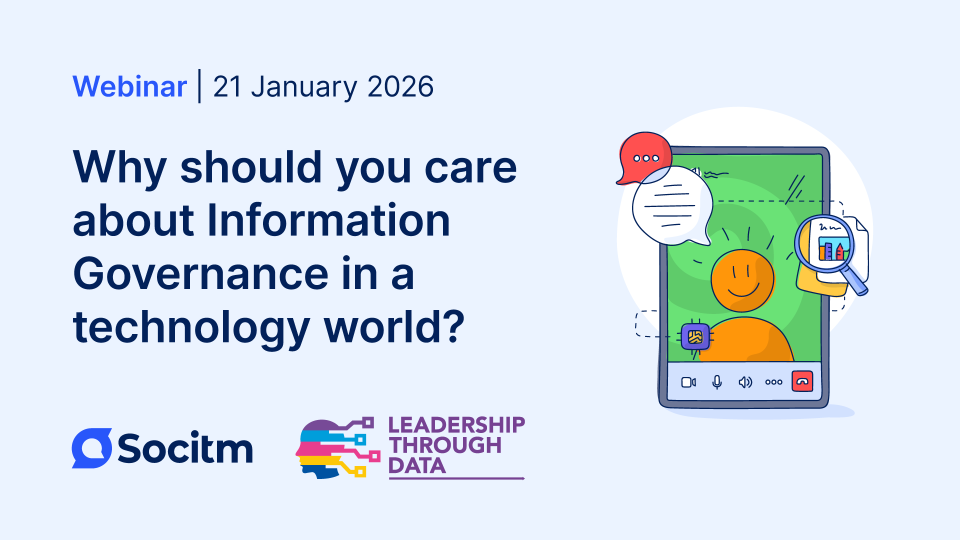Socitm’s St George’s House consultation, ‘Towards connected places: insights into actions’, spurs debate on advancing community connectivity and progress, write David Ogden and William Barker
On 18 March, a diverse group of 40 individuals representing the public, private, third and academic sectors met for a Socitm consultation at St George’s House, Windsor Castle.
Towards smart and connected places
The two-day consultation immersed participants in a rigorous schedule of discussions and debates, aimed at delving into the intricacies of what are and what makes ‘connected places’.
It followed Socitm’s inaugural consultation, Resilient people, communities and places, in November 2021, which resulted in practical actions and outcomes including the establishment of the Socitm Institute.
Day 1: Devolution, digital, data, and sustainability
Place-based leadership and transformation in an era of turbulent times, devolution, climate change and technological change.
Key points raised included how frustrating it is that as a sector we are still talking about some people preferring face-to-face services and others digital. We know this.
- If we are truly committed to increasing the profile of place-based leadership, what is it we need to do differently?
- How can leaders own the narrative around new technology and the capabilities it offers and empower staff to reimagine and deliver improved services for our communities?
We are increasingly seeing how the use and application of data insight is helping us make informed and better decisions.
Can we leverage the benefit of this approach to mainstream its adoption across the sector? It was refreshing to keep the end user at the heart of this discussion. But how can we build the collaboration and commitment to drive people and places up the agenda?
How can Socitm, its members and wider networks make a difference? What needs to change?
A way forward may be to use data and digital to inform and improve human interaction, rather than replace it.
Two big questions emerged during conversations:
1. How do we encourage local authorities to work together?
Answers include developing a shared recognition that devolution can help create new opportunities to improve local digital public service capabilities and practice across local systems, structures and economies.
Data sharing is key to this, with its potential to help create area-wide information and financial systems that can adopt the latest in AI and emerging technologies.
The emphasis on creating effective partnerships to collaborate, share assets, resources and expertise where possible is instrumental to achieving successful outcomes across place.
2. How do we bring political, executive, community leaders, and suppliers with us?
The focus should be on the way devolution is changing how local government works and starting to blur the boundaries between it and industry.
Emerging technology is changing decision making such as by harnessing generative AI and service delivery. While new opportunities are emerging for suppliers to partner in development of citizen-focused local services and capabilities that support both growth in local economies and environmental sustainability.
We can build confidence and provide reassurance for our senior leaders through demonstrating where these approaches are working well.
Other key points
We have been working on technology-driven public services for at least two decades and they are still not delivering the extra capacity they promised. The Labour government elected in 1997 said it would have all services online by 2005, freeing staff time for frontline services.
We know this is the wrong way to approach service delivery. So what do we do next? How do we take the principle of excellence in service delivery and strive for that across all our places?
Furthermore, we do not know how to describe the people we serve, and we sometimes use language that alienates them.
- Are they people, citizens, customers, service users?
- Is the word ‘digital’ getting in the way?
- How do ‘smart cities’ sound to people who do not live in cities?
We need to make our language attractive and relevant to a variety of audiences.
Linked to this, how do we cater for local differences? It is vital we understand that what might be right for a city, may not be for a rural area. A uniform place-based approach could lead to an unintentional loss of localism.
Day 2: AI and emerging technologies
How artificial intelligence can help places and communities to thrive while guarding against its risks.
Participants agreed that people are our priority, meaning public services must put the public at the heart of what they do by connecting and enabling those who live and work in a place.
It was important to ensure that people rather than technology remain central to our concept of connected and sustainable places – that in effect ‘people make places’.
There are permanent challenges and opportunities. Innovative technologies have always created challenges for local authorities as they consider their applicability and adoption.
It is worth noting that these commonplace challenges are most effectively met through sharing of experiences and expertise and collaboration between people. We need to do far more of this.
To make use of emerging technologies, including AI, will require collaboration and learning from both the rest of the public sector and the private sector, through sharing case studies and stories. In parallel, organisations will need to build their skills, capabilities and capacities to support the change.
As already discussed in day one, there is a need for common language that is widely understood, rather than shorthand technologists tend to adopt.
The public sector needs to:
- Establish common standards where possible, and relevant, to aid data sharing and integration.
- Improve data quality and reliability.
- Increase data usability and accessibility.
- Enable more efficient and effective data analysis.
- Modernise procurement, particularly as AI changes things rapidly.
- Develop flexible and agile responses to ensure these changes have a positive impact.
The adoption of a stewardship role by the Department for Levelling Up, Housing and Communities (DLUHC) is a welcome development, and the planned revision of the Local Digital Declaration provides an opportunity to strengthen central-local collaboration.
Have your say
We’ve tried to give you the key insights and highlights from two days of intense debate and discussion, which we will use to inform further development of Socitm Institute work. But have we got it right? Without restrictions, what needs to be done differently? What role does Socitm play in this?
Just some questions we welcome feedback on to ensure we’re informed by the people who matter.
Your feedback will also contribute to Socitm’s wider international work with our partners. We need to build an international collaborative knowledge-sharing platform to support you, our policy makers and practitioners.
We suggest the calls to action from our time at St George’s House are to:
- Establish common data standards across the public sector to establish common AI terminology and guidance.
- Encourage the sharing of best practice and what works to prevent the reinvention of the wheel across the sector.
- Facilitate and enable closer place-based collaboration around public, private, academic, research and the third sector.
- Support the creation of communities of interest and practice around the themes of smart, connected, resilient, and sustainable places in the era of AI.
Building on the concept of ‘connected places’, we can see the potential for collaboration, around the following common themes of focus on connectivity, place-based adoption of AI, data-driven decision making, improving quality of life in communities and sustainability and resilience.
Contact us at hello@socitm.net or join a local meeting near you. We’d love to hear from you and welcome your feedback.
Read more
- Report: Towards connected places: Insights into actions [HTML on Socitm]
- Towards connected places: Insights into actions [PDF St. George’s House]
- AI – Threats and Opportunities Consultation (October 2023)
Taken from Socitm’s membership magazine, ‘In Our View, issue 42: Designing services for all‘




